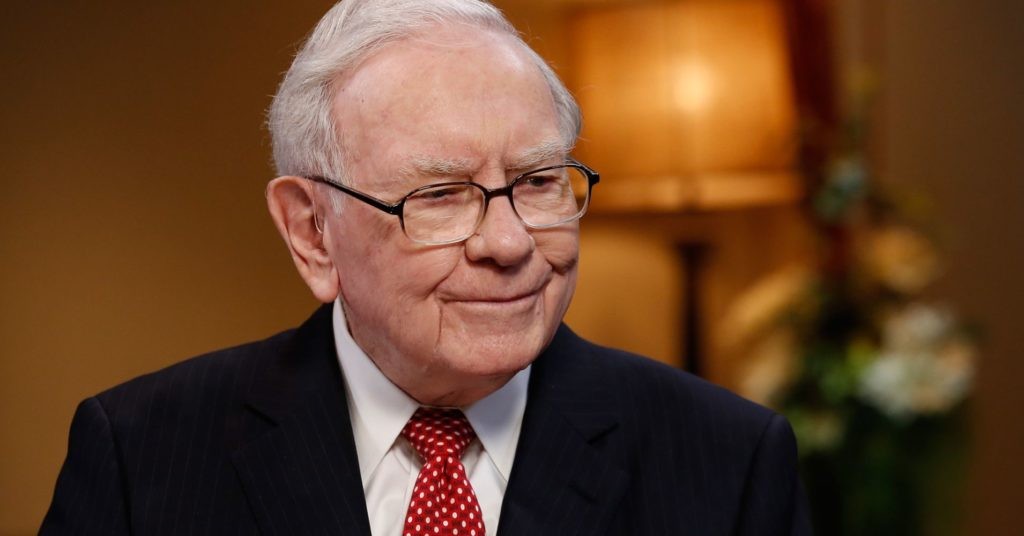sierra-barter.com – Warren Buffett, widely known as the “Oracle of Omaha,” is one of the most successful investors of all time. As the chairman and CEO of Berkshire Hathaway, Buffett has amassed a fortune through his disciplined approach to value investing, focusing on long-term growth and acquiring high-quality businesses. Known for his simple lifestyle, down-to-earth personality, and profound wisdom on business and investing, Buffett has become an iconic figure in finance. His insights have influenced generations of investors and made him one of the wealthiest people in the world.
Early Life and the Beginnings of a Financial Genius
Warren Buffett was born in Omaha, Nebraska, in 1930. From a young age, Buffett displayed an extraordinary aptitude for business and investing. He made his first stock purchase at the age of 11, buying three shares of Cities Service Preferred for himself and three for his sister. By his teenage years, Buffett had already started several small businesses, including a paper route and a pinball machine company.
Buffett attended the University of Nebraska before enrolling in Columbia Business School, where he studied under Benjamin Graham, the father of value investing. Graham’s philosophy of buying undervalued stocks based on their intrinsic value had a profound influence on Buffett’s investment approach. After completing his studies, Buffett worked briefly for Graham’s investment firm before returning to Omaha to manage his own investment partnerships.
The Rise of Berkshire Hathaway
In the early 1960s, Buffett began acquiring shares in a struggling textile company called Berkshire Hathaway. Over time, he took control of the company and shifted its focus from textiles to investing in other businesses. Under Buffett’s leadership, Berkshire Hathaway evolved into a diversified holding company, with investments in a wide range of industries, including insurance, railroads, utilities, and consumer goods.
One of Buffett’s most famous strategies is to buy and hold high-quality companies with strong competitive advantages, or “economic moats.” He looks for businesses with strong management teams, predictable earnings, and the potential for long-term growth. Among Berkshire Hathaway’s most well-known investments are companies like Coca-Cola, American Express, and Apple.
Through his disciplined approach to investing, Buffett turned Berkshire Hathaway into one of the largest and most valuable companies in the world. Today, Berkshire holds stakes in over 60 businesses, including wholly-owned subsidiaries like GEICO, Dairy Queen, and BNSF Railway.
Value Investing Philosophy and Key Principles
Warren Buffett’s investment strategy is centered on the principles of value investing, which emphasize buying stocks that are undervalued relative to their intrinsic worth. Unlike short-term traders who seek to profit from market fluctuations, Buffett is a long-term investor who looks for businesses that he can hold indefinitely. His famous saying, “Our favorite holding period is forever,” reflects his belief in the power of compounding returns over time.
Buffett’s investment decisions are guided by a few key principles:
- Buy Businesses, Not Stocks: Buffett treats stock purchases as buying into actual businesses, rather than merely trading shares. He seeks companies with strong fundamentals, durable competitive advantages, and excellent management.
- Margin of Safety: One of the key tenets of value investing is buying stocks at a discount to their intrinsic value. This provides a “margin of safety” in case the business faces challenges or market conditions change.
- Focus on Long-Term Growth: Buffett avoids short-term speculation and looks for companies that have the potential for consistent, long-term growth. He is patient and willing to hold onto investments for decades if he believes in their underlying value.
- Circle of Competence: Buffett emphasizes investing in businesses that he understands well, staying within his “circle of competence.” This helps him make informed decisions and avoid industries or companies that may be outside his expertise.
Buffett’s Simple Lifestyle and Values
Despite being one of the wealthiest individuals in the world, Warren Buffett is known for his frugality and modest lifestyle. He still lives in the same Omaha house he purchased in 1958 for $31,500 and drives a relatively inexpensive car. Buffett has always maintained that money is a tool, not a goal, and he derives more satisfaction from his work and relationships than from material wealth.
Buffett’s values are reflected in his philanthropic efforts as well. In 2006, he announced that he would donate the majority of his fortune to charity, primarily through the Bill & Melinda Gates Foundation. This pledge is part of his broader commitment to the Giving Pledge, a campaign he co-founded with Bill Gates that encourages billionaires to give away at least half of their wealth to charitable causes.
Legacy and Influence on the World of Investing
Warren Buffett’s investment success and timeless wisdom have made him one of the most influential figures in finance. His annual letters to Berkshire Hathaway shareholders are widely read and studied by investors around the world for their insights into business, investing, and leadership. Buffett’s straightforward approach to investing, along with his humility and integrity, has earned him the respect of both Wall Street and Main Street.
Buffett’s mentorship of the next generation of investors, including his role in guiding his eventual successor at Berkshire Hathaway, ensures that his legacy will continue long after his time at the helm. His influence extends beyond investing; Buffett’s principles of patience, discipline, and long-term thinking have applications in business, personal finance, and life itself.
Looking to the Future: Berkshire Hathaway Without Buffett
As Warren Buffett enters his later years, questions about the future of Berkshire Hathaway and its leadership have become more prominent. Buffett has assured shareholders that Berkshire’s decentralized structure and strong culture will allow it to thrive even without him. He has also identified potential successors who share his investment philosophy and values, ensuring that the company will continue to operate with the same disciplined approach to investing.
While the day will come when Buffett steps down, his legacy as the Oracle of Omaha is firmly established. His teachings on value investing, his leadership of Berkshire Hathaway, and his philanthropy will leave an enduring mark on the world of finance and beyond.
